mabe123/iStock/GettyImages
Whether you've had one beer or more than your usual share of wine, one thing's for sure: alcohol breath stinks. Rinsing your mouth out, brushing your teeth or chewing gum can help eradicate some of the smell in a pinch, but getting rid of the offensive odor for good also requires drinking plenty of water.
Why Bad Breath Happens
If you've ever been around others a while after they've imbibed, you're well aware of nasty, noxious booze breath. Perhaps you've even experienced that putrid post-alcohol taste in your own mouth the morning after a night out on the town. Alcohol has a dehydrating effect on your body, even in your mouth, where it reduces the amount of saliva. As the mouth dries out, more bacteria grows, causing bad breath.
Hydrate, Hydrate, Hydrate
You may already know that staying properly hydrated can help reduce the dehydrating effects of drinking alcoholic beverages, but hydration can also help prevent, reduce and eventually eliminate alcohol breath. Drink at least a glass of water after every glass of wine or beer imbibed during the course of the night to help keep alcohol breath to a minimum. Drink at least as much water by volume as you have had in alcoholic beverages to help stay hydrated, which reduces the chance of alcohol breath. For stronger drinks such as shots, drinking a full glass of water after each is still a good idea.
If it's too late to drink water between adult beverages, drink water anyway. Drink more water before bed or as you wake up to help rehydrate your entire body.
Grab That Gum
Chew a stick of gum or two to quickly reduce the reek in your breath. Any kind of chewing gum helps create more saliva in your mouth, which in turn helps flush out that bad-smelling bacteria. Gum with a strong flavor such as mint can also help temporarily freshen your breath. Choose a sugar-free gum, because sugar feeds bacteria, including the kind that cause bad breath. Xylitol-sweetened gum also helps prevent cavities and reduce bacteria.
...Or a Mint
If you aren't the gum-chewing type, a breath mint or dissolving breath strip can also help freshen your breath. As with gum, a sugar-free mint is the better option since more sugar means more food for oral bacteria.
Brush Your Teeth
Brushing your teeth thoroughly also helps remove awful-smelling oral bacteria. Brush your tongue, too, as plenty of bacteria perch there. Afterwards, rinse with a sugar-free mouthwash to help freshen your breath even more.
Chew on Mint or Parsley
A sprig of fresh mint or parsley can also help defeat funky breath in a completely natural way. Some restaurants may have these herbs on hand, or you can buy them in a well-stocked grocery store, if you don't grow them at home. Mint works by creating saliva and freshening breath as you chew, while the chlorophyll in parsley helps combat the foul-smelling, post-alcohol bacterial reactions going on in your mouth.
Related Articles

How to Make Lavender Mist Spray
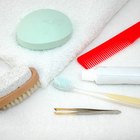
How to Relieve the Alcohol Smell From ...
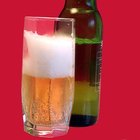
How to Sober Up a Drunk

How to Make Your Own Oxygenating ...
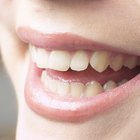
The Best Ways to Remove Nicotine Stains ...

How to Get Rid of Garlic Body Odor
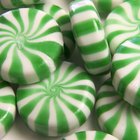
Foods for Eliminating Smoker Breath

How Can I Rid My Body of Water ...
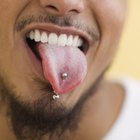
How to Treat a Fresh Tongue Piercing

How to Maintain Good Skin After Accutane

How to Naturally Treat a Fungal ...
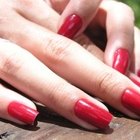
How to Care for Acrylic Nails

The Advantages of Personal Hygiene

How to Get Rid of Sticky Armpits
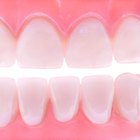
How to Soften Plaque on Teeth
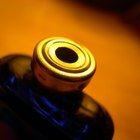
Bay Rum Uses
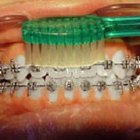
How to Increase Circulation to the Gums

How to Determine if Wine is Sweet or Dry

How to Take Castor Oil
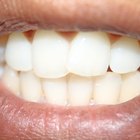
How to Make Mouthwash With Clove Oil
References
Writer Bio
Kathy Adams is an award-winning journalist. She is an avid DIYer that is equally at home repurposing random objects into new, useful creations as she is at supporting community gardening efforts and writing about healthy alternatives to household chemicals. She's written numerous DIY articles for paint and decor companies, as well as for Black + Decker, Hunker, Kroger, SFGate and others.